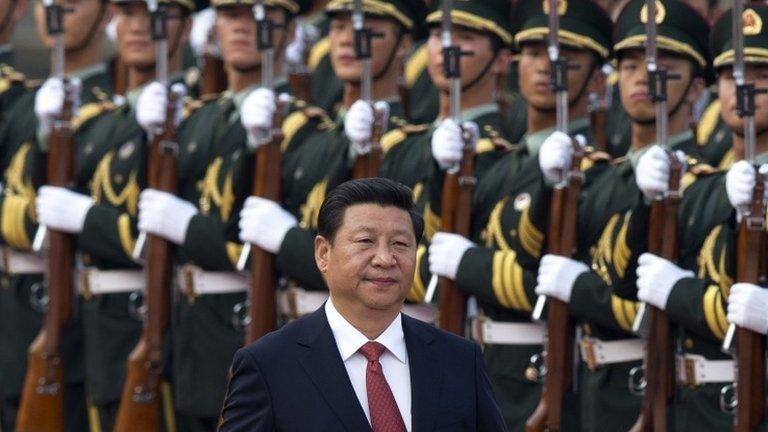Profile: China's fallen security chief Zhou Yongkang
- Published
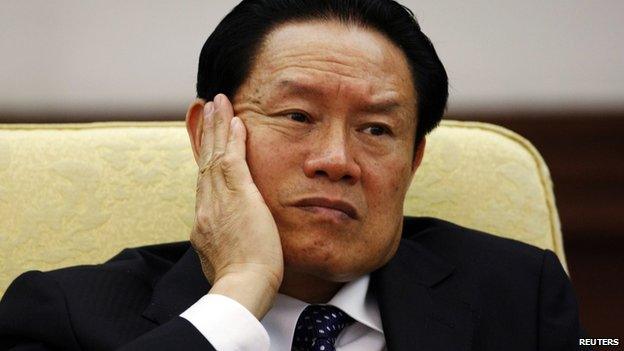
Zhou Yongkang quickly rose from an oil field technician to become one of China's top politicians
Zhou Yongkang was one of the nine most senior politicians in China until 2012, but after a spectacular fall from grace will spend the rest of his life in prison.
The former head of China's security services was convicted of a series of corruption charges, including bribery, abuse of power and leaking state secrets.
His fall began after an investigation by the Communist Party for a "serious disciplinary violation", a term usually used to refer to corruption. He was expelled from the party in December 2014 and arrested.
Many of his aides and close associates have already been sacked or investigated for allegedly breaching party discipline and other misdemeanours.
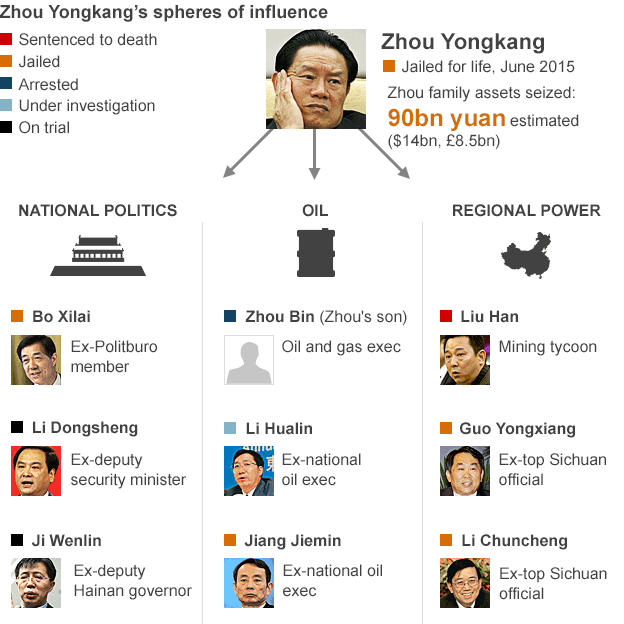
Zhou rose from a technician in an oil field in the 1960s to become the man in charge of China's vast security apparatus.
His downfall illustrates once again Chinese leader Xi Jinping's determination to root out his opponents and clean up the party's image, but also calls into question a system that breeds corruption on such an unprecedented scale.
Zhou Yongkang was born in 1942 in Wu Xi city, Jiangsu Province, in eastern China.
He joined the Communist Party in 1964 and graduated from Beijing Petroleum Institute in 1966 with a degree in geophysical survey and exploration.
He spent the next 32 years in China's oil sector, starting as a technician in Daqing oil field. He rose through the ranks and eventually became the general manager and party secretary of China National Petroleum Corporation (CNPC) in 1998, the ministerial-level head of a state owned company.
Many of Zhou's subordinates are under investigation or facing trial, most notably Jiang Jiemin, who held the post of general manager and party secretary of CNPC from 2006 to 2013.

Timeline: Zhou Yongkang
1942: Born in Wu Xi city in China's eastern Jiangsu Province
1964: Joins the Communist Party and spends the next 32 years in China's oil sector
1998: Becomes party secretary of China National Petroleum Corporation
1999: Appointed party secretary of Sichuan
2002: Appointed member of the Politburo at the 16th Party Congress; becomes minister of public security later that year
2007: Further promoted to member of the Standing Committee of the Politburo - China's highest state organ
2012: His lieutenants begin to get sacked and investigated; he appears with Bo Xilai at Chinese National People's Congress session
December 2013: His son Zhou Bin is arrested on corruption charges
December 2014: Arrested, expelled from party
June 2015: Sentenced to life in prison

'Hostile forces'
After working in the newly created Ministry of Land and Resources as minister and party secretary for a year from 1998, Zhou Yongkang was appointed party secretary of Sichuan Province in 1999, where he stayed until 2002.
Not much was reported about his achievements there, but since 2012, several of Mr Zhou's lieutenants from this period have been sacked and investigated, accused of crimes ranging from violations of party discipline to taking or offering bribes.
It is widely reported in the Chinese press that Liu Han, a very rich Sichuan businessman, had the protection of Zhou Yongkang. Liu was executed in February 2015 for "organising and leading mafia-style crime and murder".
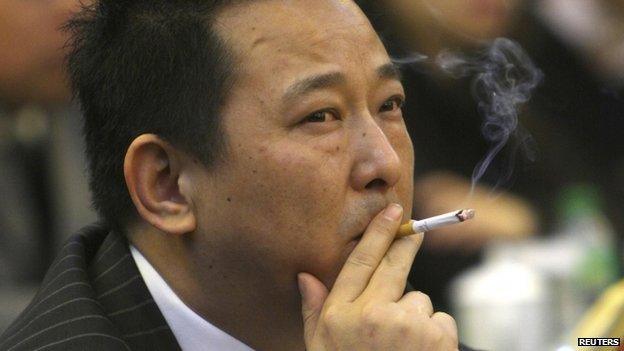
Liu Han has previously been ranked amongst China's 500 wealthiest people
The year 2002 marked a high point in Mr Zhou's career, when he was appointed a member of the Politburo at the 16th Party Congress; later in that year, he became the minister of public security.
In 2007, Zhou Yongkang was further promoted to become a member of the Standing Committee of the Politburo - China's highest decision-making body - also taking on the job of the chairman of the Central Political and Legislative Affairs Commission.
His brief included maintaining stability in the country, and "preventing and combating sabotage of hostile forces from inside and outside China". The budget for this reached 700bn yuan ($114bn, £70bn), more than the Chinese defence budget.
As the man who had to deal with unrest in Tibet and Xinjiang, security for the Beijing Olympic Games and repercussions of the "Arab spring", Mr Zhou's power stretched into courts, prosecution services, police, paramilitary forces and intelligence agents.
There was heavy-handed policing; dissent was dealt with ruthlessly and petitioners harassed on a regular basis, with many detained in illegal "black jails".
Bo Xilai ally
Zhou Yongkang also enjoyed a very close working relationship with another very senior fallen politician Bo Xilai, who is now in jail.
When Mr Bo was the party boss of Chongqing and launched the "singing red songs and hard crackdown on criminals" campaign to boost his credentials, Mr Zhou showed up in the city in 2010 to sing its leader's praises.
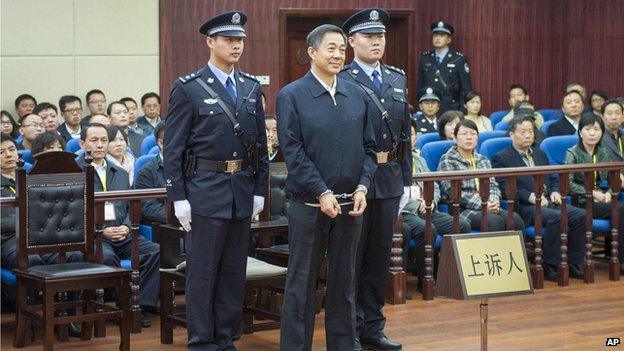
Zhou Yongkang was the patron of Bo Xilai, who was jailed for corruption and abuse of power
Days before the announcement of Bo Xilai's sacking in March 2012, Zhou Yongkang appeared with his ally during the Chinese National People's Congress session, saying how Chongqing's economy put it well ahead of other parts of the country.
During Bo Xilai's trial in August 2013, Mr Bo told the court that he had received instructions from the Political and Legal Affairs Commission on how to handle police chief Wang Lijun's defection to the US consulate, in order to protect himself.
Zhou Yongkang was the chairman of the commission at the time.
This part of Mr Bo's confession was not revealed to the public, but it leaked out from people who had been present in court.
Zhou Yongkang married twice, and one of his sons with his first wife is Zhou Bin, a high-profile oil and gas executive. According to Hong Kong press, Zhou Bin was arrested in December 2013 on corruption charges.
- Published29 July 2014
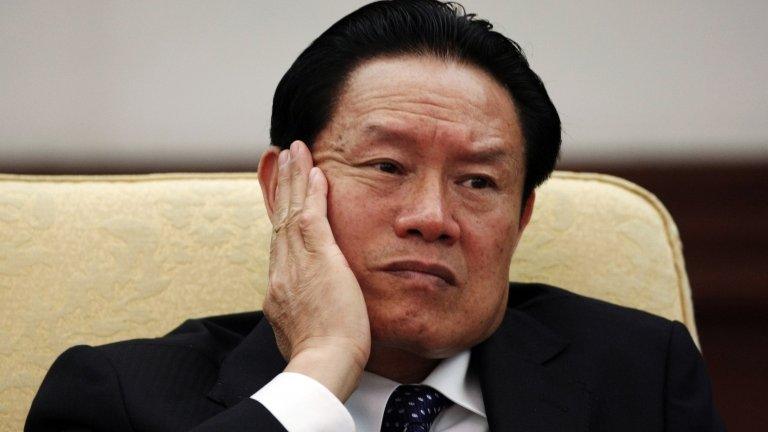
- Published23 May 2014
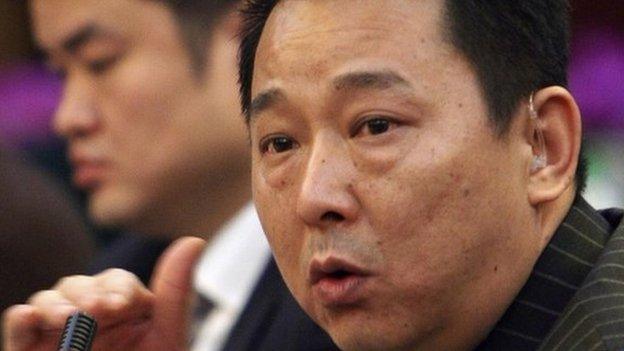
- Published16 December 2013
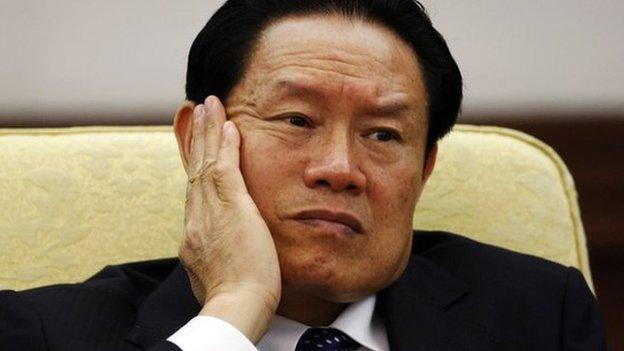
- Published30 December 2013
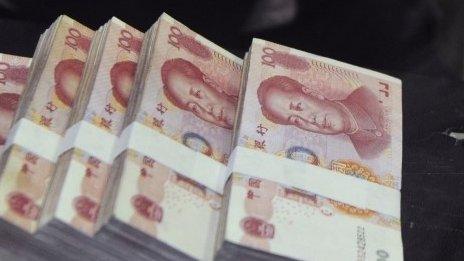
- Published19 February 2014
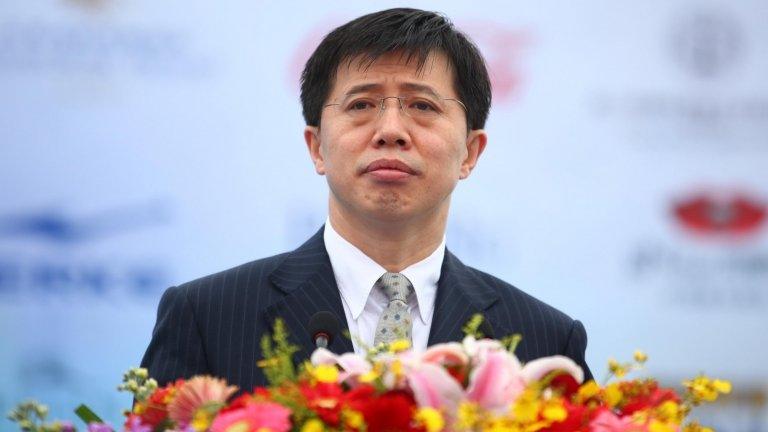
- Published26 October 2013
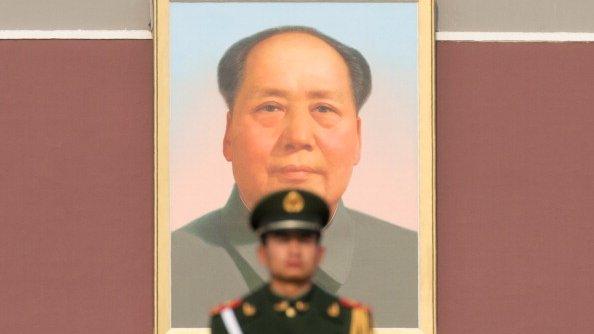
- Published4 September 2013
